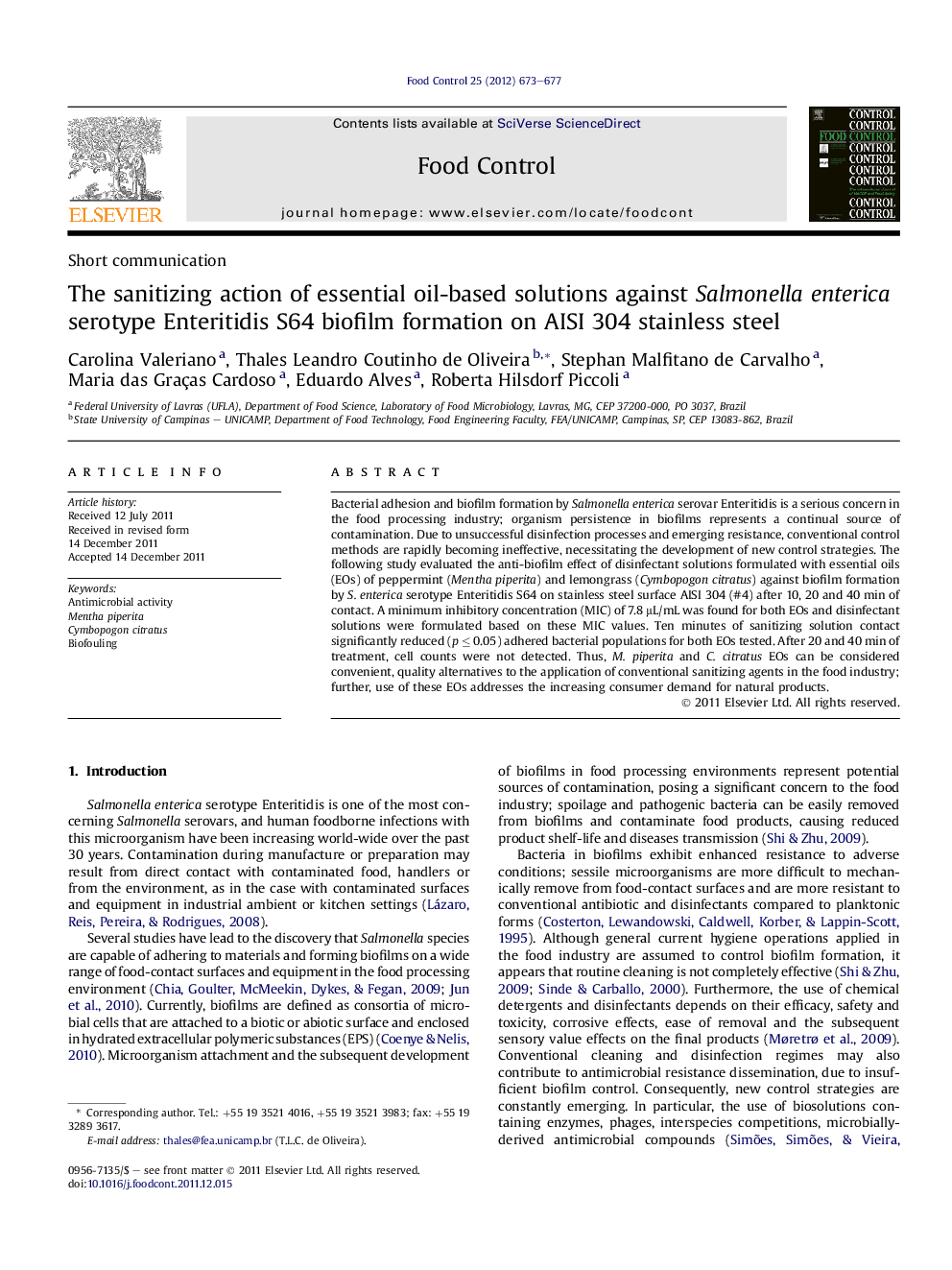| Article ID | Journal | Published Year | Pages | File Type |
|---|---|---|---|---|
| 6393639 | Food Control | 2012 | 5 Pages |
Abstract
Bacterial adhesion and biofilm formation by Salmonella enterica serovar Enteritidis is a serious concern in the food processing industry; organism persistence in biofilms represents a continual source of contamination. Due to unsuccessful disinfection processes and emerging resistance, conventional control methods are rapidly becoming ineffective, necessitating the development of new control strategies. The following study evaluated the anti-biofilm effect of disinfectant solutions formulated with essential oils (EOs) of peppermint (Mentha piperita) and lemongrass (Cymbopogon citratus) against biofilm formation by S. enterica serotype Enteritidis S64 on stainless steel surface AISI 304 (#4) after 10, 20 and 40 min of contact. A minimum inhibitory concentration (MIC) of 7.8 μL/mL was found for both EOs and disinfectant solutions were formulated based on these MIC values. Ten minutes of sanitizing solution contact significantly reduced (p â¤Â 0.05) adhered bacterial populations for both EOs tested. After 20 and 40 min of treatment, cell counts were not detected. Thus, M. piperita and C. citratus EOs can be considered convenient, quality alternatives to the application of conventional sanitizing agents in the food industry; further, use of these EOs addresses the increasing consumer demand for natural products.
Related Topics
Life Sciences
Agricultural and Biological Sciences
Food Science
Authors
Carolina Valeriano, Thales Leandro Coutinho de Oliveira, Stephan Malfitano de Carvalho, Maria das Graças Cardoso, Eduardo Alves, Roberta Hilsdorf Piccoli,
